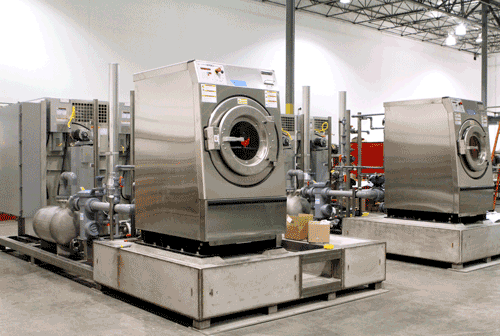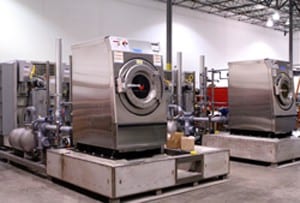
On top of the parallel construction advantage, costs are further reduced through every iteration of the system that is built. Improvements and efficiencies build upon each other with compounding effect, further saving time and money. Take, for example, a recent set of modular process mixing skids that EPIC built. The project consisted of:
- Thirteen modular process skids, designed to perform the same general mixing procedure but differing slightly in design to meet each facility’s needs.
- Automation of a previously manual process across various plants was achieved with these systems
- A fast solution that solved a compliance problem for the newly acquired facilities that desperately needed the process upgrade
REPEATED MODULAR PROCESS DESIGN COST SAVINGS:
Being able to design and fabricate all thirteen modules in a production-style environment was key to this strategy. Skids were built under the same roof, with the project engineer working closely with the fabrication team. System quality was highly controlled, with ideal fabrication plant conditions. Only a modular design allowed for such synergies, which can be categorized into three general groups:
- Engineering efficiencies were achieved because major system elements only had to be designed and engineered once. Any issues that arose or unknowns that existed in the first system were quickly corrected for the design of subsequent systems. High communication between the engineering and fabrication team improved this.
- Scheduling efficiencies were achieved by finding ways to further compress the project schedule as each iteration was built. Basic equipment was pre-specified for each system, and a standard ordering procedure was developed for each skid.
- Fabrication efficiencies were achieved because standard frames, equipment and piping placements, etc. were developed. Also, EPIC was able to assign the same fabrication crew to each subsequent modular process system, which meant the fabrication personnel became very familiar with the design. Having the project on site every day, because the same firm was managing the engineering and fabrication, helped quickly resolve any discrepancies or problems.
Having the same turnkey integrator for each system meant each module became more efficient in cost and design, benefiting the client’s bottom line. Read our “repeated modular process skids” case study for further information on this particular case, or contact an engineer today to start discussing your specific system.
